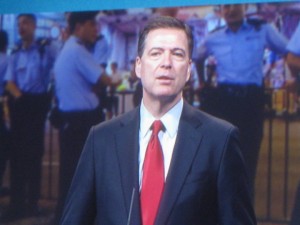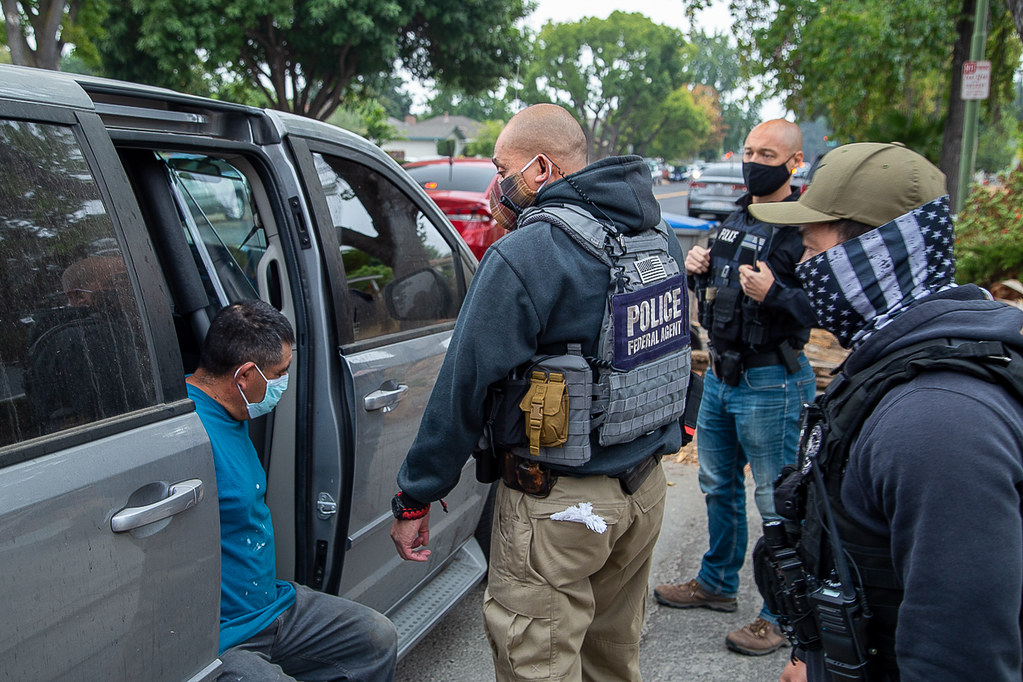
ORLANDO, Fla. — FBI Director James B. Comey delivered the key note address Monday at the International Association of Chiefs of Police Conference in Orlando, warning of the potential dangers of the “travelers” from around the world who are joining ISIS in battle. He also raised concerns domestically about the challenges of getting information from devices like smartphones for investigations, despite court-authorization.
“We as a country, with our allies around the world, have done a great job over the last 13 years of taking the fight to core al Qaeda in the Afghanistan, Pakistan region,” Comey told thousands of local, state, federal and foreign law enforcement agents and officers and chiefs gathered in a cavernous auditorium at the Orange County Convention Center.
“In the course of that we have shrunk that tumor. I think of terrorism as a cancer. We have shrunk that tumor significantly. At the same time, the lightly governed or ungoverned spaces that have popped in a lot of different parts of the world, especially in wake of the Arab Spring, in Northern Africa, around the Gulf and around the Mediterranean, have allowed a metastasis of that tumor. So we’ve seen popping virulent strains that are the progeny of al Qaeda…And most recently the Islamic state, or ISIL.”
“What’s happened is that those lightly governed spaces have allowed these secondary tumors to root and to offer safe havens and to attract to those…people from around the world, seeking meaning in their lives in some incredibly misguided way, looking to wage jihad.”
He said the travelers who come from the U.S. and around the world to fight in Syria and Iraq pose a great danger.
“Them going there is very worrisome. Because they get the worst kind of relationships, they get the worst kind of training. It’s actually their coming out at some point that worries me even more. There will come a terrorist diaspora out of places like like Syria and Iraq. Those of us who are old enough to remember can remember the terrorist diaspora out of Afghanistan after the war with the Soviets. And we can draw a line from that diaspora to 9/11.”
“All of us in this business are determined, I know to ensure that a future diaspora does not lead to a future tragedy. So we’re focused together on the traveler phenomena.”
Comey also touched on the issue of “going dark,” the inability of investigators to tap into communication devices like tablets and smartphones, even with a judge’s order.
He said it has been a problem ever since the 1990s, but it has only gotten worse as the number of devices has increased.
He’s been hammering away at the issue of late. In a speech in D.C. earlier this month, he brought up the issue, saying that some companies have not developed products so that communications can be intercepted, or in other instances, companies have resisted court orders to turn over information. He said it’s hindered investigation at times.
On Monday, he said:
“Before we get to the place where good folks, victims of crimes come to us and say, ‘What do you mean, you can’t, I thought a judge said you, with a search warrant, could warrant could get this information. What do you mean you can’t find the information that may help you locate a missing child, find the information that will help you break up a terrorist cell, find the information that will identify and root our pedophiles.’ Before we get to a place where our answer is, ‘I’m sorry, I can’t,’ we need to have a conversation.”





